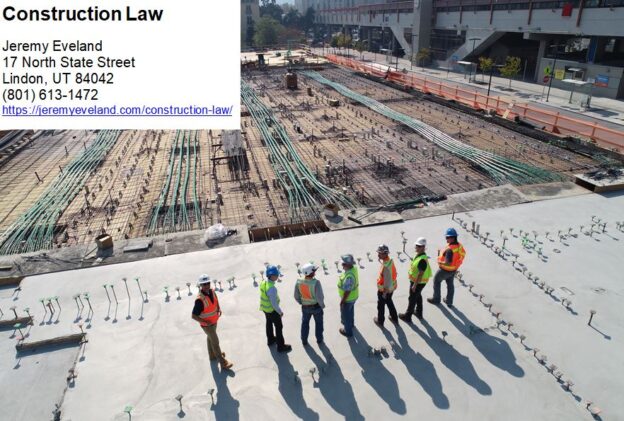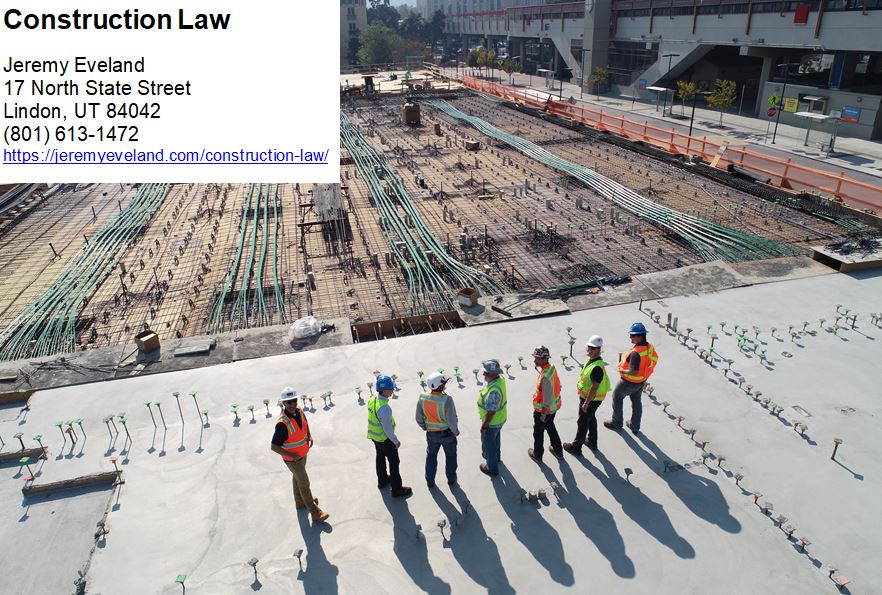Employment Law
-
Table of Contents
The Impact of the COVID-19 Pandemic on Employment Law
The COVID-19 pandemic has had a significant impact on employment law. As businesses have been forced to close or reduce their operations, many employers have had to make difficult decisions about layoffs, furloughs, and other cost-cutting measures. This has led to a number of legal issues that employers must consider when making these decisions.
First, employers must be aware of the various laws and regulations that govern layoffs and furloughs. These laws vary from state to state, so employers must be sure to comply with the applicable laws in their jurisdiction. Additionally, employers must be aware of the various federal laws that may apply, such as the WARN Act, which requires employers to provide advance notice of layoffs and furloughs.
Second, employers must be aware of the various laws and regulations that govern employee benefits. Many employers have had to reduce or eliminate certain benefits in order to remain financially viable during the pandemic. However, employers must be aware of the various laws and regulations that govern employee benefits, such as the Consolidated Omnibus Budget Reconciliation Act (COBRA), which requires employers to provide certain benefits to employees who are laid off or furloughed.
Third, employers must be aware of the various laws and regulations that govern employee wages. Many employers have had to reduce or eliminate wages in order to remain financially viable during the pandemic. However, employers must be aware of the various laws and regulations that govern employee wages, such as the Fair Labor Standards Act (FLSA), which requires employers to pay certain minimum wages and overtime wages.
Finally, employers must be aware of the various laws and regulations that govern workplace safety. As businesses have reopened, employers must ensure that their workplaces are safe for employees and customers. This includes following applicable laws and regulations, such as the Occupational Safety and Health Act (OSHA), which requires employers to provide a safe and healthy work environment.
The COVID-19 pandemic has had a significant impact on employment law. Employers must be aware of the various laws and regulations that govern layoffs, furloughs, employee benefits, wages, and workplace safety in order to remain compliant and protect their employees.
Understanding the Basics of Employment Discrimination Law
Employment discrimination law is an important area of the law that protects employees from unfair treatment in the workplace. It is important for employers to understand the basics of this law in order to ensure that they are compliant with the law and that their employees are treated fairly.
The primary federal law that governs employment discrimination is Title VII of the Civil Rights Act of 1964. This law prohibits employers from discriminating against employees on the basis of race, color, religion, sex, or national origin. It also prohibits employers from retaliating against employees who oppose discrimination or participate in an investigation of discrimination.
In addition to Title VII, there are other federal laws that prohibit discrimination in the workplace. The Age Discrimination in Employment Act (ADEA) prohibits employers from discriminating against employees who are 40 years of age or older. The Americans with Disabilities Act (ADA) prohibits employers from discriminating against employees with disabilities. The Equal Pay Act (EPA) prohibits employers from paying employees of different genders different wages for the same job.
State laws may also provide additional protections against employment discrimination. It is important for employers to be aware of the laws in their state and to ensure that they are compliant with all applicable laws.
Employers should also be aware of their obligations under the law. Employers must provide a workplace free from discrimination and must take steps to prevent discrimination from occurring. Employers must also provide a process for employees to report discrimination and must take appropriate action when discrimination is reported.
Employment discrimination law is an important area of the law that protects employees from unfair treatment in the workplace. It is important for employers to understand the basics of this law in order to ensure that they are compliant with the law and that their employees are treated fairly. By understanding the basics of employment discrimination law, employers can ensure that their workplace is free from discrimination and that their employees are treated fairly.
The Pros and Cons of At-Will Employment
At-will employment is a type of employment relationship in which either the employer or the employee can terminate the relationship at any time, for any reason, with or without notice. This type of employment is common in the United States, and it is important for employers and employees to understand the pros and cons of this arrangement.
Pros
One of the main advantages of at-will employment is that it provides employers with flexibility. Employers can hire and fire employees as needed, without having to worry about the legal implications of terminating an employee. This allows employers to quickly respond to changes in the business environment and adjust their workforce accordingly.
At-will employment also provides employees with flexibility. Employees can leave their job at any time, without having to worry about the legal implications of quitting. This allows employees to pursue other opportunities or take time off without worrying about their job security.
Cons
One of the main disadvantages of at-will employment is that it can create an unstable work environment. Employees may feel that they are not secure in their job and may be reluctant to speak up or take risks. This can lead to a lack of innovation and creativity in the workplace.
At-will employment can also lead to unfair treatment of employees. Employers may be tempted to terminate employees for arbitrary reasons, such as personal differences or favoritism. This can lead to a hostile work environment and can discourage employees from speaking up or voicing their opinions.
In conclusion, at-will employment can be beneficial for both employers and employees, but it is important to understand the potential risks associated with this type of arrangement. Employers should ensure that they are treating their employees fairly and that they are providing a secure and stable work environment. Employees should also be aware of their rights and be prepared to take action if they feel they are being treated unfairly.
Navigating the Complexities of Family and Medical Leave Laws
Navigating the complexities of family and medical leave laws can be a daunting task for employers. Understanding the various laws and regulations that apply to family and medical leave is essential for employers to ensure compliance and avoid potential legal issues.
The Family and Medical Leave Act (FMLA) is a federal law that provides eligible employees with up to 12 weeks of unpaid, job-protected leave for certain family and medical reasons. The FMLA applies to employers with 50 or more employees and requires employers to provide eligible employees with unpaid leave for the birth or adoption of a child, to care for a family member with a serious health condition, or to address their own serious health condition.
In addition to the FMLA, many states have their own family and medical leave laws. These laws may provide additional rights and protections to employees, such as paid leave, longer leave periods, or broader definitions of family members. Employers must be aware of the laws in their state and comply with any additional requirements.
Employers should also be aware of the Americans with Disabilities Act (ADA) and the Pregnancy Discrimination Act (PDA). The ADA prohibits employers from discriminating against employees with disabilities and requires employers to provide reasonable accommodations for employees with disabilities. The PDA prohibits employers from discriminating against employees based on pregnancy, childbirth, or related medical conditions.
Finally, employers should be aware of the Fair Labor Standards Act (FLSA). The FLSA requires employers to pay employees for any time they are required to work, including time spent on family and medical leave.
Navigating the complexities of family and medical leave laws can be a challenging task for employers. However, understanding the various laws and regulations that apply to family and medical leave is essential for employers to ensure compliance and avoid potential legal issues.
Exploring the Benefits of Employee Handbooks and Policies
Employee handbooks and policies are essential tools for any business. They provide a comprehensive overview of the company’s expectations and rules, and they help ensure that employees understand their rights and responsibilities. By having a clear set of policies and procedures in place, businesses can ensure that their employees are treated fairly and that their operations run smoothly.
Employee handbooks and policies can help to create a positive work environment. They provide employees with a clear understanding of the company’s expectations and rules, which can help to reduce confusion and conflict. They also provide a reference point for employees to refer to when they have questions or need clarification on a particular issue.
Employee handbooks and policies can also help to protect the company from legal issues. By having a clear set of policies and procedures in place, businesses can ensure that their employees are treated fairly and that their operations are in compliance with applicable laws and regulations. This can help to reduce the risk of costly legal disputes.
Employee handbooks and policies can also help to improve employee morale. By providing employees with a clear understanding of the company’s expectations and rules, they can feel more secure in their roles and more confident in their ability to do their jobs. This can lead to increased productivity and job satisfaction.
Finally, employee handbooks and policies can help to create a sense of unity among employees. By having a clear set of policies and procedures in place, employees can feel like they are part of a team and that their contributions are valued. This can lead to increased loyalty and commitment to the company.
In summary, employee handbooks and policies are essential tools for any business. They provide a comprehensive overview of the company’s expectations and rules, and they help ensure that employees understand their rights and responsibilities. By having a clear set of policies and procedures in place, businesses can ensure that their employees are treated fairly and that their operations run smoothly. Additionally, employee handbooks and policies can help to protect the company from legal issues, improve employee morale, and create a sense of unity among employees.
Contract Negotiation Consultation
When you need legal help with contract negotiation, call Jeremy D. Eveland, MBA, JD (801) 613-1472 for a consultation.
Jeremy Eveland
17 North State Street
Lindon UT 84042
(801) 613-1472
Related Posts
Business Transaction Lawyer West Valley City Utah
Do I Need A Permit To Start A Business In Utah?
Business Succession Lawyer Draper Utah
Business Contract Lawyer Salt Lake City
What Is The Difference Between Corporate And Commercial Law?
Business Contract Lawyer West Valley City
Business Lawyer West Jordan Utah
Irrevocable Life Insurance Trusts
What Is The Purpose Of A Business Attorney?












